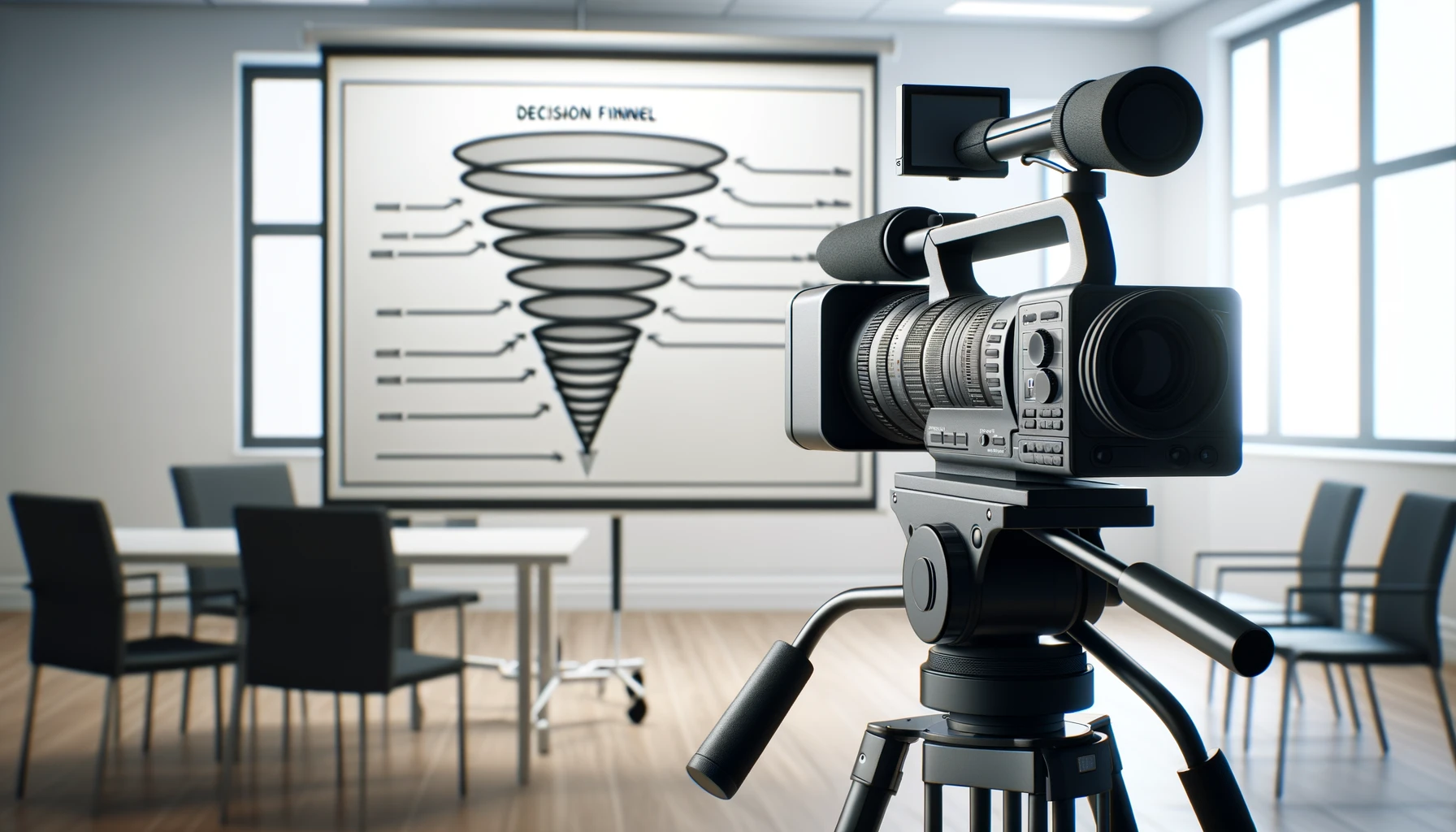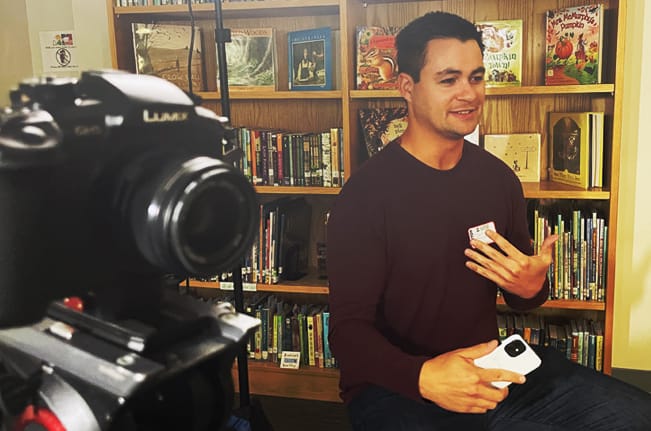Interviewees, whether they are staff members, customers with testimonials, the business owner or the CEO, are the drivers of the story you’re about to create in a marketing video, recruitment video, or any other type of video that involves interviews. Their spoken words and genuine passion will be used to create the narrative surrounding their experience with the organization and help to express the value of the products, services, and environment, helping to support your overall strategy.
Below are some tips for conducting the ideal video interview beyond capturing a beautiful frame with great lighting and sound. You want the interviewee to look good, but you also want to make sure they appear comfortable and authentic in the spotlight.
1. Guide the Video Interview with Compelling Questions
When you’re writing your questions for the interview, use your story structure as a guide. Define the goal of the video and ensure your questions will lead your interviewee towards that goal. If the goal is to get more interest in a product or service, for example, make sure your interviewees answers will reflect that narrative.
Remember to formulate your interview with open-ended questions. The worst thing for interview footage is to end up with “yes” and “no” answers. Instead of, “Did you like this product?” ask, “Tell me about what your life was like before this product.” You’ll likely receive a lengthier and more detailed response that propels the story forward.
Finally, coach your subject to respond to questions by rehashing the question within their answer. Make sure that when you ask, “How has this product helped you?” they respond to the effect of, “This product has helped me because…”. In doing so, your soundbites will have built-in context for the audience after edits.
2. Conduct a Pre-Interview
Always try to do a pre-interview with each subject who will be on camera. Set the expectations for what the interviewee will experience and be asked to do while on camera. As a result, they’ll be more prepared for questions you’re going to ask, even if they choose to answer naturally within the moment. Pre-interviews help subjects start thinking about their answers before the real deal. You should also let them know what your goals are for the video so that everyone is on the same page.
3. Keep it Casual
The lights, cameras, and microphones can be intimidating, so counteract the staging by staying relaxed. Being too serious and reading off the question sheet directly can make the subject uneasy and therefore look unnatural in the footage. Keep the interview conversational and try not to interrupt interviewees during their answers. Imagine you’re talking over a coffee or at a bar about something really exciting – viewers will be inspired by the passion and authenticity that shines through.
4. Stay Flexible in the Moment
A great interviewer knows when a question needs a follow-up. If a subject gives a great answer with the potential for even more golden content, ask for more information even if you haven’t prepared for this moment. Stay interested in what the subject is talking about and grab as much footage as you can as if you’re in a candid conversation with a friend.
It’s important to stay flexible if the subject is either shy or talkative. If they’re reserved and not giving enough information, you might need to lead them a little more. If they’re talking too much, you might need to redirect them to get to the point. Follow your intuition.
5. Smile for the Camera!
Finally, the best way to get great interview footage is to smile and listen. Staying engaged and friendly will help the subject feel comfortable and open up. Naturally, they will react to your body language, so you want to mirror interest and keep a relaxed smile on your face. The more passionate you are, the more passionate they’ll be in return.
Of course, it’s important to put a time cap on all interviews, no matter how engaging they are or how much prodding the subject needs. Fatigue can ruin an interview, and you’ll need to review all of this content under a fine-tooth comb.
Remember: Not all subjects are naturals, so it’s up to you to be a great interviewer. There are always ways to edit and piece the narrative together from the footage you’ve captured, but you want to make sure you have something usable in the first place.
Looking for more tips on how to conduct a great marketing video interview?
Contact Monzo Media Productions to discuss your project or strategy.





